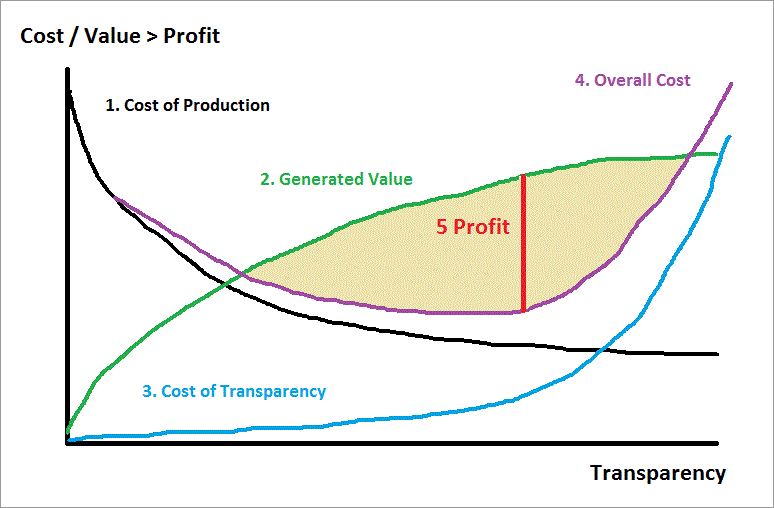|
|
Ten Things You Need to Know About the Infowar
Or, Are We in Post-Reality Yet?
(Cont'd from P. 1)
6. An infowar is not just a war that uses words and images instead of bombs; it is a struggle between old and new power structures over who will control access to information.
As a corollary, information technologies (hard and soft) are the latest weapons.
Robin Bloor's written a brilliant piece, "Wikileaks: This Is Just The Beginning," comparing the current situation to the conflict between Pope Leo X and Martin Luther, which he says arose from the invention of the Gutenberg press. He nails many important aspects of the situation, including the following:
| |
[I]t’s a mistake to see the US government as a specific side in this war. This is an info war and info wars take place between power structures not countries. It’s the US power structure, not the US itself, that currently has a side in this war. Info wars are, by their very nature, civil wars between groups of citizens that live under the aegis of a given information control structure. One side wishes to conserve it, while the other wishes to change it. |
(The whole article's well worth reading, including his list of virtual infrastructure needs highlighted by developments in the current conflict.)
The infowar we're now witnessing is not the first; it's just the first conducted online.
But the infowar is not just about using computers, or even info as a weapon, but more importantly about the systemic structure that will determine who can control it and to what ends. As I've put it, computers are the new guns; but it goes beyond that. And as Bloor points out, it's not a war against or for any particular nation. It's a struggle between old and new power structures over who will control access to information. The struggle currently led by Wikileaks is to give the rest of us access not only to the truths that have been hidden from us but also to the fact that the existing system of power over information and secrets is dysfunctional and in need of fundamental, structural reform. |
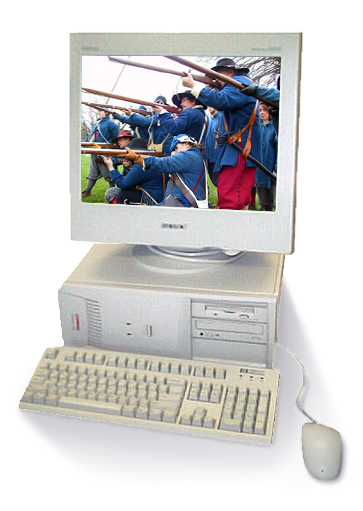 |
7. The infowar is in essence a class war over knowledge as a form of wealth.
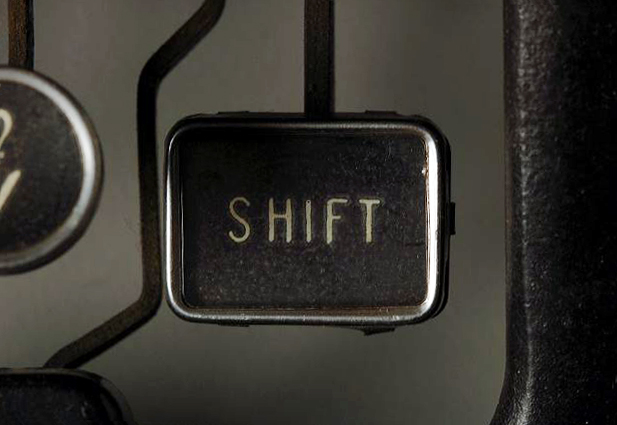 |
As a corollary, information is a commodity for which there are markets that are (absent effective regulation) manipulable.
At a recent art talk in Dallas, Texas, Jon Cates said, "technology is wealth" (January 29, 2011, in connection with his "Moviestorm Machinima Audition Tape TX VRSN" (2011), in the exhibition, Glitch, at CentralTrak).
As I've put it, the current infowar (and perhaps others) is the new class war, with "class" defined by wealth measured not in terms of money but in terms of information. Money may or may not equal speech, but information equals wealth, because it empowers its possessors to get what they want.
|
In 2009, Assange gave one of his many excellent speeches. Below is a transcript of a portion of it (I'm probably including more than necessary for purposes of this essay, but I'm not aware that this much of the speech has been transcribed elsewhere, and it may be of interest):
| |
Censorship is actually an opportunity. That censorship is some form of arbitrage, to keep information concealed in a limited market from a bigger market. But politically, what does censorship reveal? It reveals fear. So, China has a lot of fear of freedom of the press. Iran . . . China and Iran do actively censor us [Wikileaks]. Both these countries have a fear of freedom of the press. That means that they perceive that if information is released, it's going to have some kind of reform effect. Now, depending on your position, if you're in that authority or your outside it, you may say this effect is positive or negative. But it does show that their perception, and they probably know best because they are the author of these documents, is that those documents are politically powerful.
In the West we do have a bit more of a problem, in that the basic structural relationships in highly developed Western countries are fiscal, they are not political, and it's much harder to affect fiscal relationships through free speech than it is to affect political relationships. So, is freedom of speech free in the West because the West is so enlightened? Or, is freedom of speech free in the West because . . . relative to China . . . is it free in the West because perhaps it's hard to do much with freedom of speech, that the basic power structures that exist in the West are fiscalized and hidden from social opprobrium?
I think maybe speech is free like the birds and the bees when they have no chance of political impact. Now of course there's many counter-examples; but I think, you know, these fiscal relationships have been structurally engineered in such a way that they're complex and opaque, and so that when we, operating with The Guardian, have revealed information about complex structural arrangements that Barclays Bank takes to push money through thirteen or fourteen different countries, to 'rob,' if you like, the United Kingdom and other countries of the money that they need to sustain their social system, but it's so complex, how can people become angry with information that's that complex? Well, it's hard; you have to work a lot harder as a journalist to turn that into an emotionally impactful story. So that's a kind of 'tax' on powerful revelation.
But anyway, when countries and organizations fight to suppress things, you know you have a foot in the door, you know you have a chance for reform. In other countries where information seems to be free, maybe actually the basic structures are so locked up that it’s going to be hard to make an effect. Anyway, I encourage everyone to try.
[Assange is warned his time's run out.] On these USB keys is 573,000 intercepted pager messages from September 11th, that haven't been released yet . . . . So, that's a lot of information . . . . We will release this tomorrow on the web, but I will give this to people here who want it now, and you can go and explore it and investigate it. Remember, it's 573,000 messages. We can't do it alone; the idea is that you do it. We spend our efforts getting it to you and allow you to publish it. But you've got to turn it into a story and make it moving to the population. |
(Emphasis supplied; from a speech at the New Media Days 2009 conference, Denmark.)
Note that Assange speaks of information as a commodity for which there are manipulable markets; i.e., among other things, knowledge is a form of wealth. This makes sense; perhaps the very definition of real wealth is, after all, power. Even gold is worthless if it doesn't enable you to buy what you want.
Ellsberg has pointed out (at the symposium referred to above) that corporations have played key roles in assisting the US government both in spying on us and in maintaining opacity about the government's own operations.
And when Wikileaks came along and threatened governmental opacity, corporations mounted a very successful attack against it on several fronts: amazon kicked WL off their servers, and PayPal, MC, Visa, Bank of America and other major banks stopped processing donations to WL. Wikileaks survives, but it's crippled, perhaps even fatally – even though it has yet to be charged with any breach of any law in any nation, despite feverish efforts by the US and other governments. The attacks on Wikileaks' financial and infrastructure are instances of a new kind of brute force. |
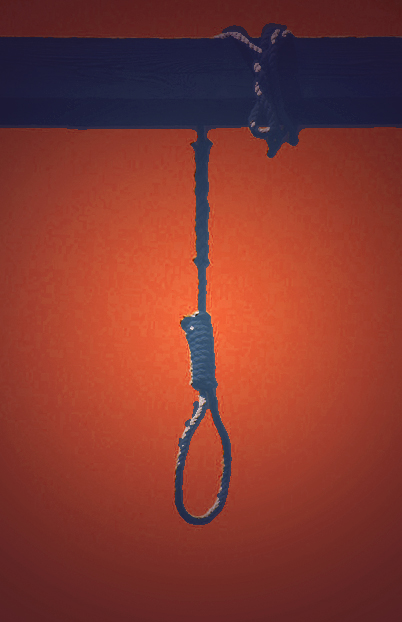 |
8. Greater transparency maximizes efficiency and profits for a group as a whole, but individuals within the group profit most when they're not transparent while others in the group are.
|
There's a fascinating piece, "The Transparency Paradox," at colayer, regarding what I've called Assange's theory of "the cost of tightened secrecy to organizational I.Q.," or as Volatility puts it more succinctly (more under Thing No. 9 below), his "secrecy tax." The author at colayer says studies show that, while greater transparency maximizes efficiency and profits for a group as a whole, individuals within the group profit most when they're not transparent while others in the group are.
General transparency means that everyone has more useful info to work with, and can work together efficiently to solve problems and create wealth for all; the group benefits from the "wisdom of the crowd," as James Surowiecki would put it, or as Assange might say, the computational power of the system as a whole is maximized.
|
(Image above from "The Transparency Paradox," at colayer.)
And, colayer points out, the internet and other technologies now available have greatly reduced the cost of transparency.
But when you're negotiating, you have an advantage if you know what cards the other parties are holding but they're ignorant of yours.
I'd like again to emphasize again the importance of the dimension of time, which Assange has also written about, in his 2006 essay for counterpunch, "Of Potholes and Foresight." To put part of his point in other words, a stitch in time often saves nine, and transparency makes that kind of foresight possible, which otherwise tends to give way to political pressures to allocate resources in more near-sighted ways. Recall Wikileaks' logo (an hourglass). Or as someone else said, making a related but somewhat different point, " . . . Napoleon . . . said that it wasn't necessary to completely suppress the news; it was sufficient to delay the news until it no longer mattered." (attributed by PRWatch to Martin A. Lee & Norman Solomon, Unreliable Sources: A Guide to Detecting Bias in News Media (New York: Lyle Stuart, 1991), P. xvii; I hope the internet adopts Assange's "scientific journalism" and becomes better sourced, as well as more complete, soon).
This is one reason I disagree with commentators who have discounted the importance of social media in connection with the uprisings in the Middle East. Twitter and other facilities afforded nearly instant communication regarding facts on the ground, which not only enabled the protesters themselves to respond appropriately to unfolding events in real time, but also enabled millions around the world to virtually witness those events and to condemn governments' aggression against their own peoples, again in real time. Not only were people in Egypt and elsewhere enabled to do something about the injustices they knew of, but we could (at least theoretically) do something about them before 300 martyrs became 30,000. (The problem with such facilities, of course, is that they're not owned by their users, so not only can they can be shut down at any time, they can also be used to facilitate surveillance and persecution of their users.)
9. So long as a system as a whole remains mostly transparent, it's a more-than-zero-sum game; but where transparency has sufficiently deteriorated, the competition among "players" devolves into a race to see who can loot the most the fastest, even if valuable resources (including personnel) are wasted in the process.
Re- the big, "systems" picture, there's a great article at Volatility on "racketeering":
| |
According to Joseph Tainter’s theory of imperial collapse, as societies become more complex, they must expend an ever greater portion of the energy they have available simply on maintaining their complexity. Although social and technological advances may achieve profitable returns for awhile, once a certain level of complexity is reached, diminishing returns set in. Eventually, at the late imperial stage, the complexity of the power structure, the military infrastructure, the bureaucracies, all the rents involved in maintaining an ever more bloated parasite class, their luxuries, the police state required to extract these rents and keep the productive people down, and the growing losses due to the response of the oppressed producers, everything from poor quality work to strikes to emigration or secession to rebellion, reaches a point where the system can only cannibalize itself and eventually collapse.
Julian Assange’s theory of the secrecy tax he’s trying to impose through Wikileaks is one example of these diminishing returns on imperial complexity. All the indications are that Wikileaks has been successful in this.
* * * * *
This is a welter of parasites battening on the same host. They’re in a zero sum game, not only against the people, but among themselves. Each has an interest in just exploiting the host, not killing it. But together they are killing it and therefore themselves. It’s clear none is capable of organizing or regulating the others. The federal government isn’t capable of doing it. If one big bank tried to do it, it would be subverted by the others. Each racket, from highest to lowest, is going to maximize its bloodsucking until there’s no blood left. |
I would argue that "complexity" is often associated with a lack of transparency. And I would argue that size matters greatly, since it's difficult for a large system to function without some kind of internal division of responsibilities, and that means complexity. One of the main respects in which both size and complexity matter has to do with the fact that they make it more difficult to keep track of what different individuals or agencies within the organization are doing and hold them accountable. In particular, those at the top of the hierarchy become less accountable to those along the bottom.
Again, theoretically, so long as the system as a whole remains mostly transparent, it's not a zero-sum game (or at least, its productivity growth would be subject only to such physical limits as peak oil or climate change), because problem-solving and general efficiency are maximized by pervasive info-sharing, plus everyone's equally incentivized. The system as a whole is greater than any one individual within it or even than the sum of its "parts."

(Still from Falls (2008).)
In contrast, where transparency has sufficiently deteriorated, workers become less productive, both because of reduced info-sharing and because they're disincentivized – i.e., those not sharing info are still incentivized to continue to exploit the others, but once those who are being exploited figure out what's going on, they're discouraged from sharing and working hard just to enrich the exploiters. At this point, the competition devolves from who can produce the most of the best, into who can loot the most the fastest. If anything, non-transparency should tend to result in something even worse than a zero-sum game, since not only are opportunities for growth wasted, but even resources already in existence may be at least partially wasted, since each actor is motivated to grab what it can even at the cost of spoiling portions of the remainder for possible use by others.
(As a side note, viewing information as a currency, it's interesting to consider what happens when a currency is either inflated or deflated. Based on the "transparency paradox", one might suppose that, as more information is shared with more people, its value might inflate. But this ignores two important distinctions between info and other kinds of currencies: (1) that information has an inherent value that neither fiat money nor even gold share, in that it confers productive power on its possessors in ways that neither fiat currencies nor gold can; and (2) that the same information can be possessed by many people at the same time, and confer the same productive power on all of them.)
10. By virtue of the internet, humanity is (again) on the verge of a potential transition from a system in which powerful elites exploit the governed in a less-than-zero sum game, to a more transparent, collaborative, more-than-zero-sum game system. If the system as a whole remains mostly transparent, the growth in mankind's collective intelligence and well-being may be about to explode.
But this beneficial effect could be retarded, perhaps even partially prevented, if we fail to protect the internet and facilities like Wikileaks from those who seek to control them.
Viewing groups as computational systems suggests that, as humanity becomes more and more connected and able to interact quickly via the internet, and if the system as a whole remains mostly transparent and without significant censorship of important information, our collective intelligence and well-being could be about explode into exponential growth. If, on the other hand, we fail to protect the internet from those who wish to control it for their own benefit, this growth could be retarded and at least partially prevented.
This is not the first time humanity's transitioned from a system in which governing elites exploit the governed in a less-than-zero sum game, to a more transparent, collaborative, more-than-zero-sum game system. According to Bloor (above), Gutenberg's invention of the printing press led to Martin Luther's and others' translations of the Bible, the break-up of the Vatican's monopoly over the information contained in books, and, eventually, "[t]he schism in the Roman Church, the fall of the monarchies of Europe, the rise of democracy; the introduction of paper money, modern banking, insurance, limited companies, stock markets and other financial markets and much greater international trade; the birth of newspapers, literacy, the publishing industry and universal education."
(Image right from Bad Weather Boyz.) |
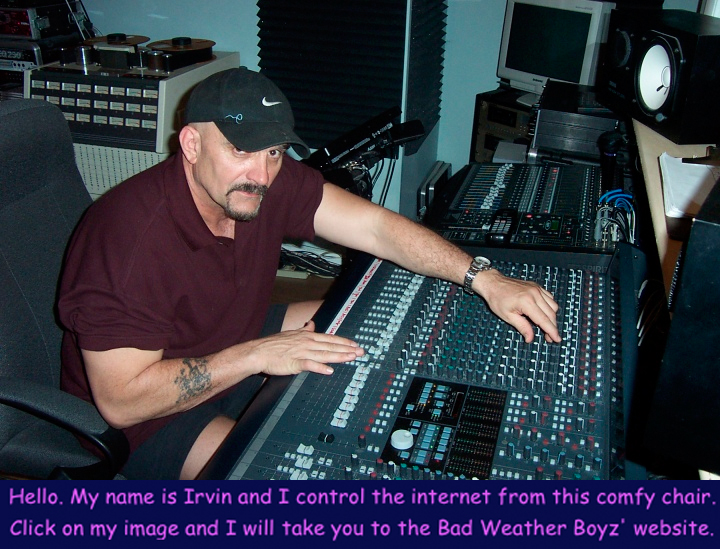 |
A smaller-scale transition took place in response to the 1929 stock market crash and the Great Depression. The Securities Exchange Acts of 1933 and 1934 and the Glass-Steagall Act regulated banks and securities markets, so as to bring much greater transparency and stability to those industries.
Following both Gutenberg's invention and the New Deal, however, powerful elites eventually managed in various ways to chip away at or acquire control of the new information power structures that had been introduced.
With respect to print publishing and other mass media, as of 2007, over 90% of all traditional media worldwide were owned by just nine megacorporations (see FAIR, Pirate Radio, and N.O.W.). Elites' control was facilitated in recent times by the repeal of the FCC's Fairness Doctrine in 1987 followed by the loosening of regulations limiting excessive concentration of media ownership (see esp. under "United States"). (Even Sec. of State Hillary Clinton recently complained that while traditional US media's viewership has dropped, "like it or hate it . . . . viewership of al Jazeera is going up in the United States because it's real news.")
With respect to financial regulation, savings and loan associations were deregulated under Reagan, quickly leading to the S&L crisis of the 1980s. Nonetheless, deregulation continued. Glass-Steagall was repealed in 1999, and the Securities Exchange Commission and other agencies involved in regulating the investment and banking industries were de-funded and have been almost entirely co-opted by the firms they're supposed to regulate. Nouriel Roubini, the NYU professor who predicted the 2008 financial crisis, noted in a 2009 interview at The Globe and Mail (unfortunately no longer available online) that throughout recorded history, there's been a more or less regular cycle of economic bubble-and-bust every ten years, with only one exception during which we managed to prevent such crises from arising for a solid fifty years: the period while Glass-Steagall and other post-depression financial regulations remained in effect. Yet because the US government has been captured by the banking and securities industries, to this day they remain inadequately regulated.
The powerful are no less alert to defend their existing information control structure against the threats presented by the internet in general and by facilities such as Wikileaks in particular. E.g.,the "net neutrality" rules proposed by the Obama administration contain gaping holes that would for the first time allow wireless internet service providers to block content or applications whenever they liked, for business or political or other reasons; and the rules also fail to ban paid prioritization (see PCMag). As Lawrence Lessig warned back in 2001, "[t]he innovation commons of the Internet threatens important and powerful pre-Internet interests. During the past five years, those interests have mobilized to launch a counterrevolution that is now having a global impact." (UPDATE: see also The Guardian: "The internet as a model of free speech and access is coming to an end, says web expert Tim Wu" [link supplied].)
To those who assume the internet and volunteers such as Anonymous will save the day: you – we – are Anonymous. Look at the history of infowars. The powerful aren't sitting back, and the rest of us shouldn't, either.
To comment on this essay, please go here.

Return to P. 1 or
|
|
|



